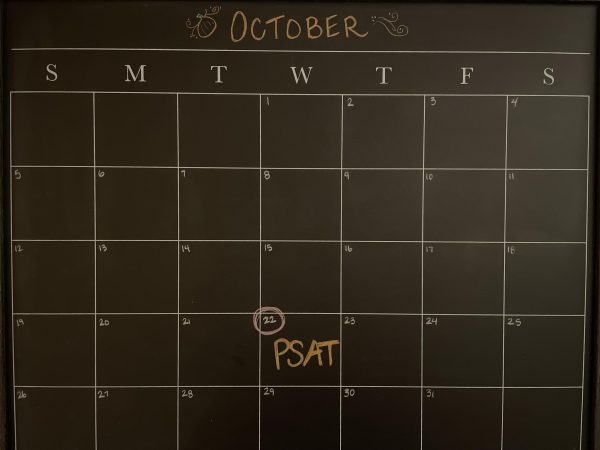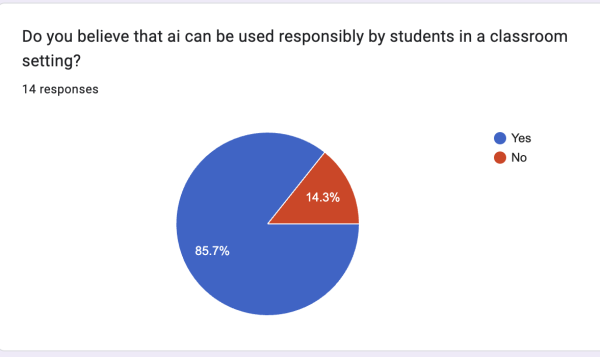Should Pass or Fail Grading Replace Second Semester Letter Grades?
As a result of the COVID-19 pandemic, schools all around the country have been easing back their requirements, some even going so far as to implement a pass or fail grading system. Colleges were the first institutions to do so, but as it has become clear that K-12 schools will not be returning to in-person education this year, more and more schools are following suit.
High school students from all around Missoula, including many from Hellgate High School, have been speculating as to whether or not MCPS will also adjust their grading scale to accomodate students. Since the school district announced on May 1 that the board voted to extend the emergency closure through the rest of the year, almost 75% of the second semester will have been conducted through distance learning.
Distance learning has posed some challenges, and students are attempting to learn in new ways in a new space, while dealing with other stressors. Some students are working 4, 5, even 6 days a week to support their families. Other students are trapped in difficult home lives, and many may not have reliable access to internet or technology. Many more may be struggling to learn new material without one-on-one assistance from teachers in the classroom. “I know for me it’s way different learning online than in class and I think I obviously haven’t learned the material as concrete as I would in a classroom,” said Michael Parkey, a sophomore at Big Sky High School.
To reduce the burden on students, students and families have wondered if there was a way to lessen the demands on students while still motivating them to continue to work. “Grades are stressful enough during any normal school year, let alone during a pandemic,” said Gilly Sherrill, a junior at Hellgate.

In an email from Hellgate High School Principal Judson Miller, sent out on March 17, he said, “We understand that many of you are still balancing a number of new ‘at home’ issues that impact family life. Your partnership is very important to all of us and we continue to work on making school important and relevant, but it is not the most important thing to focus on right now.”
“This entire process is very taxing for all of you. Please know we (as a HHS Staff) spend a lot of time trying to account and plan for the fact that mental and physical health should be a priority for everyone. School and everything associated with it is important, but it is all flexible and fixable. Please continue to work on healthy tools to manage this crisis,” he said in an email sent one week later, on March 20.
Some students hope those sentiments reflect that the high schools are seriously considering switching to pass fail grading. “We have missed a vital part of our school year and [changing the grading system] would create a more equal chance,” said Kihla Lax, a sophomore at Hellgate High School.
One suggestion that’s been proposed is switching the traditional system of letter grades to pass or fail grading for this semester. Each student would be assessed simply on whether or not they met basic expectations, and transcripts would only state whether they “passed” or “failed” the class.
In a recent poll of 105 students, 79% said that they wanted schools to switch to pass or fail grading, and 21% said they would not support it. Many students elaborated, highlighting increased stress, limited access, and the difficulty of needing to teach yourself as reasons why students should be held to different expectations during this time.
“Not every student has the same opportunities to learn at home. It is unjust to measure knowledge using a system that does not give everyone the same opportunity. When you take away the primary source of education you can not expect the same standard of grading,” said Cosette Burrese, a sophomore at Sentinel High School.
“In order to make it fair you must also take away the style of grading that matches with traditional school. By having grades still this semester, schools could be ruining kids’ chances of scholarships and the potential to be accepted into high achieving colleges and programs.”
However, even though the majority of students support a switch to pass or fail grading, not everyone is on the same page. High achieving students who feel as though they are successfully learning from home expressed that they wanted to keep the grades they’ve earned.
“I think that they shouldn’t because many students rely on their grades for college admissions. Some students need an exact GPA, and not just pass or fail. Also, students who are looking forward to becoming a Valedictorian or a Salutatorian need exact letter grades to determine what they will be,” said Haiden Munden.
Another argument made against a pass or fail grading system is that it has the potential to actually make it easier to fail a class. “There are only two grades, you either pass or fail, and because digital learning is difficult for some students it may be easier to fail a class if a pass or fail system is implemented,” said Anya Craig, a junior at Hellgate High School.
“It could ruin a student’s GPA and they could not receive the credit for the semester despite the hard work they put in before this all happened. Pass/fail doesn’t mean the class will be easier, it just means that there are two grade possibilities and it may be detrimental to an individual.”
If the schools were to switch to pass or fail grading, it is unclear whether students’ current grades, or grades before distance learning began, would be taken into account. It is also unknown how teachers would decide whether a student should pass or fail.
The same week that the MCPS board decided to extend the school closure through the rest of the 2019-2020 school year, the board also voted on several emergency measures regarding the COVID-19 situation.
One temporary policy that was accepted states “Teachers will grade students as usual in accordance with established classroom or course practices during the grading period in accordance with District Policy 2420. The default option for students and parents is the grade typically assigned for students in the grade level or class which may include an A-F letter grade. Given the unique circumstances of the remote learning situation and hardship due to continued education under the COVID-19 restrictions, the District may provide an academic variance in addition to the default option of traditional A-F grading.”
“The variance may include, but is not limited to, the following options: pass/fail, determination of proficiency and granting of credit, or awarding a No Grade (NG) signifying an incomplete that could be made up at a later time. In collaboration with Principals, the Superintendent will develop administrative procedures to implement the provisions of the grading variance. The administrative procedures will define a process for determining proficiency as well as the protocol for awarding credit and calculation of GPA.”
This policy seems to indicate that pass or fail grading is a real possibility for students this semester, although it is not yet clear whether or not it will actually be used.
The one thing that everyone seems to agree on, regardless of whether they do or don’t support the implementation of a pass or fail grading system, is that these times are unprecedented. Most teachers seem to understand that. They have been assigning less work and doing their best to ensure their students stay educated and involved, while still allowing them time to take care of themselves. For now, students can only wait and see what the administrators decide to implement.

Just a girl who fell in love with journalism and never looked back. This is my third year with the Lance and my second year as Co-Editor. I also play soccer...





